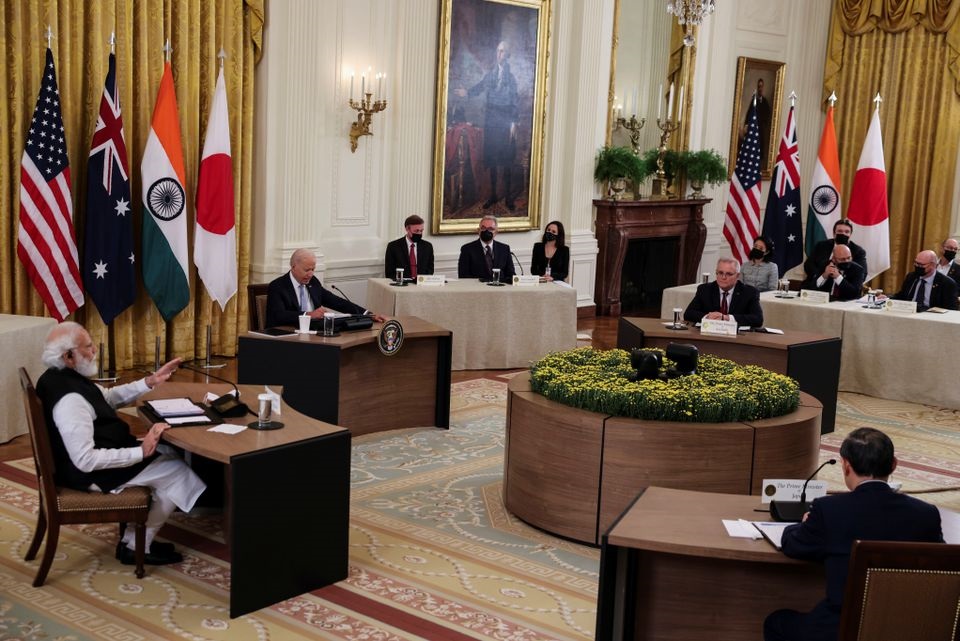Concern about China establishing a military base in the South Pacific was among the reasons for the meeting. The Quad Group has stated its commitment to a free, open and inclusive Pacific Ocean. Of course, the Quad Group did not have other meetings until 2017, and in that year, on the sidelines of the East Asian Summit, the group’s senior officials met each other.
India and China have the longest border in the world and have even had tensions; such as the killing of 20 Indian soldiers in 2020 by Chinese soldiers. Australia and China have also taken steps to counter the Wuhan Institute of Virology’s role in the spread of the Covid-19 virus, following Australia’s request, and Australia’s security pact with the United States and Britain is an example of such confrontation.
Japan and China also have maritime disputes, including the Senkaku Islands. The United States is also concerned over China’s growing economic-technological influence in the world, and in particular sees the “China-Made 2025” strategy as a serious threat to its position in the international political economy.
Quad Group’s main concerns include creating an alternative model for Chinese lending to the Pacific infrastructure projects and countering China’s global influence by building rail and sea routes connecting Central Asia, Europe and Africa, and Chinese vaccine diplomacy.
In addition, creating a semiconductor supply chain for drawing, identifying and mapping vulnerabilities and gaining secure access to semiconductors and their critical components in relation to G5 technology is also on Quad’s agenda.
In the space field, the Group intends to establish a new working group on space technology and to work with it in order to discuss ways to exchange satellite observation data and analyze the risks of climate change. The Quad Group has also had focused on the Covid-19 vaccine, and Biden has announced that the Quad Group will work with India for the production of one billion doses of the vaccines by the end of 2022.
So far, China has not issued an official statement on the Quad Group meetings, and its reactions have been more in anticipation of the Quad Group’s failure or an emphasis on openness and inclusiveness. In fact, China is pursuing its main strategy, that is to say infiltration with the least obvious political-military tension, but on the other hand, it can be seen from the content of Quad talks that the long-term strategy of “China-Made 2025” is the most important axis of the Quad Group’s confrontation with China as such that emphasis on emerging technologies and opening up new supply chains is the main focus of Quad Group cooperation.
The withdrawal of the United States from Afghanistan and the assumption based on the opening of a new arena of confrontation between China and the United States can even be interpreted in the sense that it creates new playing fields to counter China’s influence in the world, which is the same confrontation between Sinicization and Americanization.
Of course, this confrontation is more current in the field of technology-economy. Although the United States has defense treaties with Japan and Australia, and the Quad countries conduct periodic joint military exercises, the Quad is not a military alliance and there is no formal defense pact between the four countries.
However, it can be seen as a strategic, China-focused partnership. In fact, maritime security is a major challenge for the Quad because China has built military installations and commercial waterways in the Indo-Pacific region, which Quad members see as a potential threat to free trade and travel. Nevertheless, each of the four countries has its key trade relations with China, and as such, the Group is moving in the direction of a soft confrontation.










0 Comments